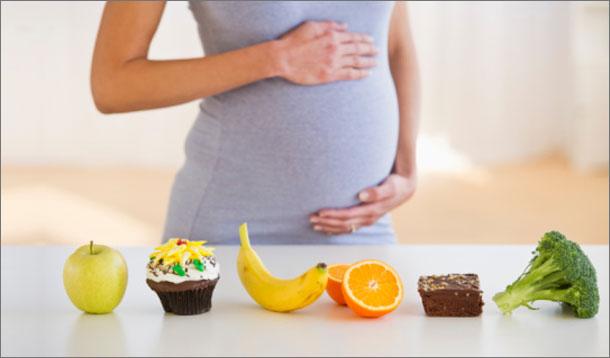When you are pregnant, the nutritional needs of your body will change, because the baby that is growing inside of you will also be taking their nutritional needs from you. Controlling nutrition during pregnancy is therefore very important. Whilst you can get prenatal supplements from pharmacies, you should discuss these with your prenatal care provider before you start taking them, and only take them as instructed if you do. It is also possible to control nutrition during pregnancy by maintaining a balanced and healthy diet.
Absorbing enough folic acid is one of the most important parts of nutrition during pregnancy, because it can help to prevent neural tube defects in your baby. All women should aim to have at least 400 micrograms of folic acid each day until they are at least 12 weeks pregnant. Some women may be advised to take up to 5 milligrams each day, if they have been deemed to be in a higher risk group. Folic acid tablets are available but natural forms of folic acid can be found in brown rice and green, leafy vegetables. Some breads, margarines and breakfast cereals also contain added folic acid.
Women should aim to have an extra 10 micrograms of vitamin D per day. This can be taken in the form of a supplement. Most people get their vitamin D from the sunlight; however you should avoid sunbathing as you make enough vitamin D before you tan or burn. Vitamin D is also found naturally in oily fish like sardines, salmon or mackerel, although you should only eat these twice a week when pregnant. People with darker skin or those who usually keep their skin covered are at higher risk from vitamin D deficiencies and should therefore discuss nutrition during pregnancy with their prenatal care provider.
Many women require extra iron during pregnancy to prevent the risk of anemia. Iron can be found in lean meat (ensure that it is cooked through), green leafy vegetables and nuts. One unfortunate side effect which is associated with iron supplements as a form of nutrition during pregnancy is that they can cause increased risk of constipation. Discuss this with your prenatal care provider if it is a concern.
It is important that mums-to-be consume enough calcium nutrition during pregnancy as it is required to give the baby strong bones. Dried fruit, pasteurized dairy products, tofu, broccoli, kale and fish with edible bones are all great sources of calcium.
Nutrition from vitamin C is required to help the baby to develop healthy cells. Fruit and vegetables are the most important sources of vitamin C. Citrus fruits, broccoli, peppers and tomatoes are all particularly rich sources of nutrition during pregnancy.
If you want to maintain a vegetarian or a vegan diet during pregnancy, or if you think that you will have any other issues with nutrition during pregnancy, mention this to your prenatal care provider straight away. It can be hard for vegetarians and vegans to get some of the nutrients that they require, but it is possible if you create a special pregnancy plan.
Recent Posts
- Castor Oil For Better Hair Growth: Is It Myth Or Fact?
- Exploring the Differences Between Sermorelin, Ipamorelin, Ibutamoren, GHRP2, and GHRP6: Understanding Their Role in Human Growth Hormone Regulation
- Unraveling the Mystery: Understanding the Causes and Prognosis of Ventricular Tachycardia Without Apparent Heart Disease
- Understanding Grandparents’ Rights in Oklahoma: Navigating Visitation and Legal Protections
- 10 Reasons to Consider Hypnotherapy for Your Health


